The biggest sporting duel on the planet: Sebastian Coe vs Steve Ovett
With no Olympics this year, Mick O’Hare harks back to Moscow in 1980, to an event remembered by athletics fans around the world as the greatest clash ever of two middle-distance runners

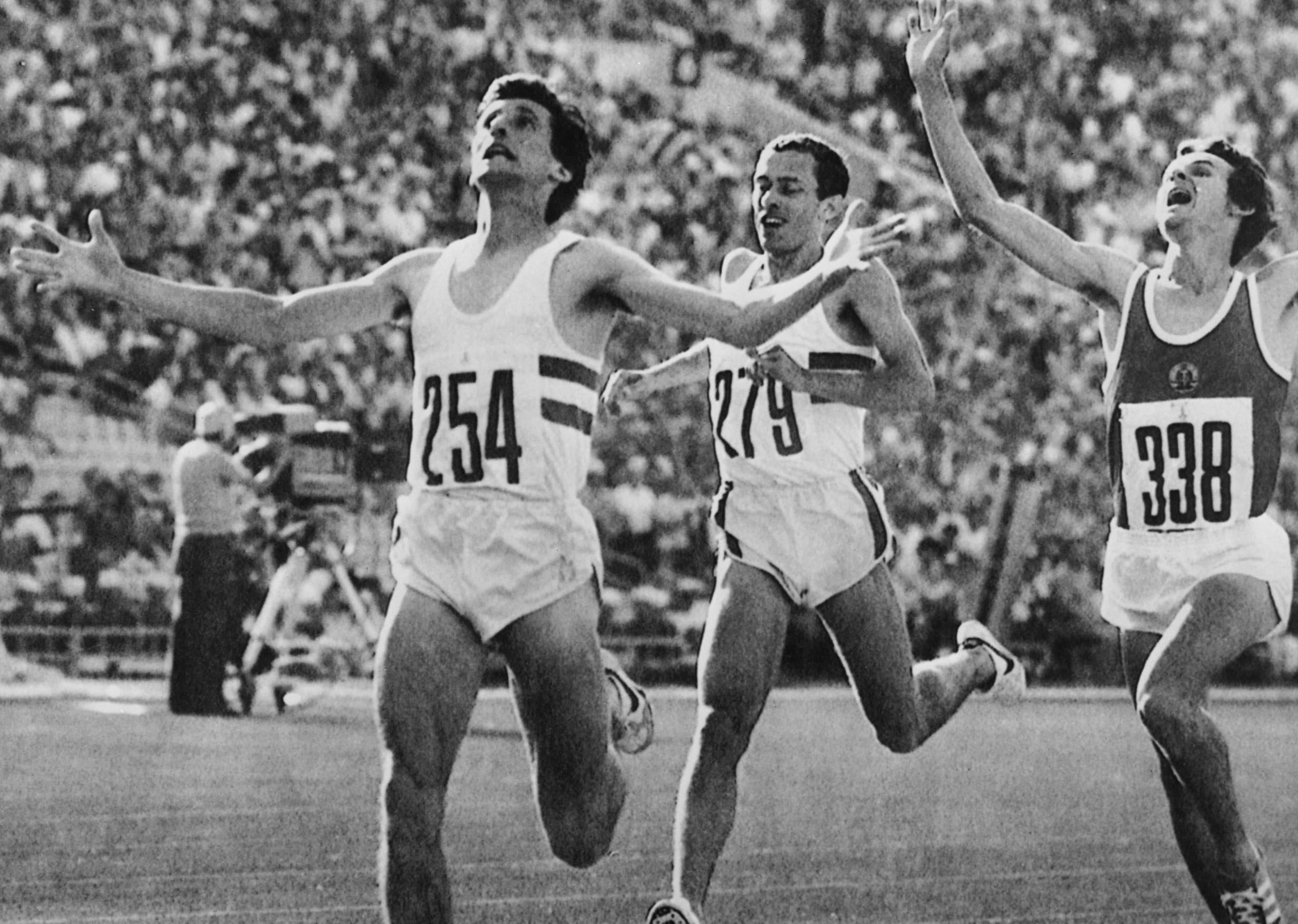
And here comes Coe. A dramatic move on the outside by Sebastian Coe… and Coe has won the major 800m title he wanted…” BBC commentator David Coleman was describing the British athlete’s victory in the European Championships in Stuttgart in 1986, a long six years after he was supposed to have won the Olympic 800m title in Moscow.
Back in 1980 Coe was the greatest 800m runner the planet had ever seen, and was the current world record holder at 1 minute 42.33 seconds. He set nine world records over his career including three in 42 days in the summer of 1979. And he was the overwhelming favourite to take gold in Moscow. But once there he would be facing another great British middle-distance runner, Steve Ovett, also a multiple record holder, who had equalled Coe’s 1500m world best only two weeks before. Ovett was the reigning European Champion and was favourite for the longer distance; he hadn’t been beaten over three years and 45 races.
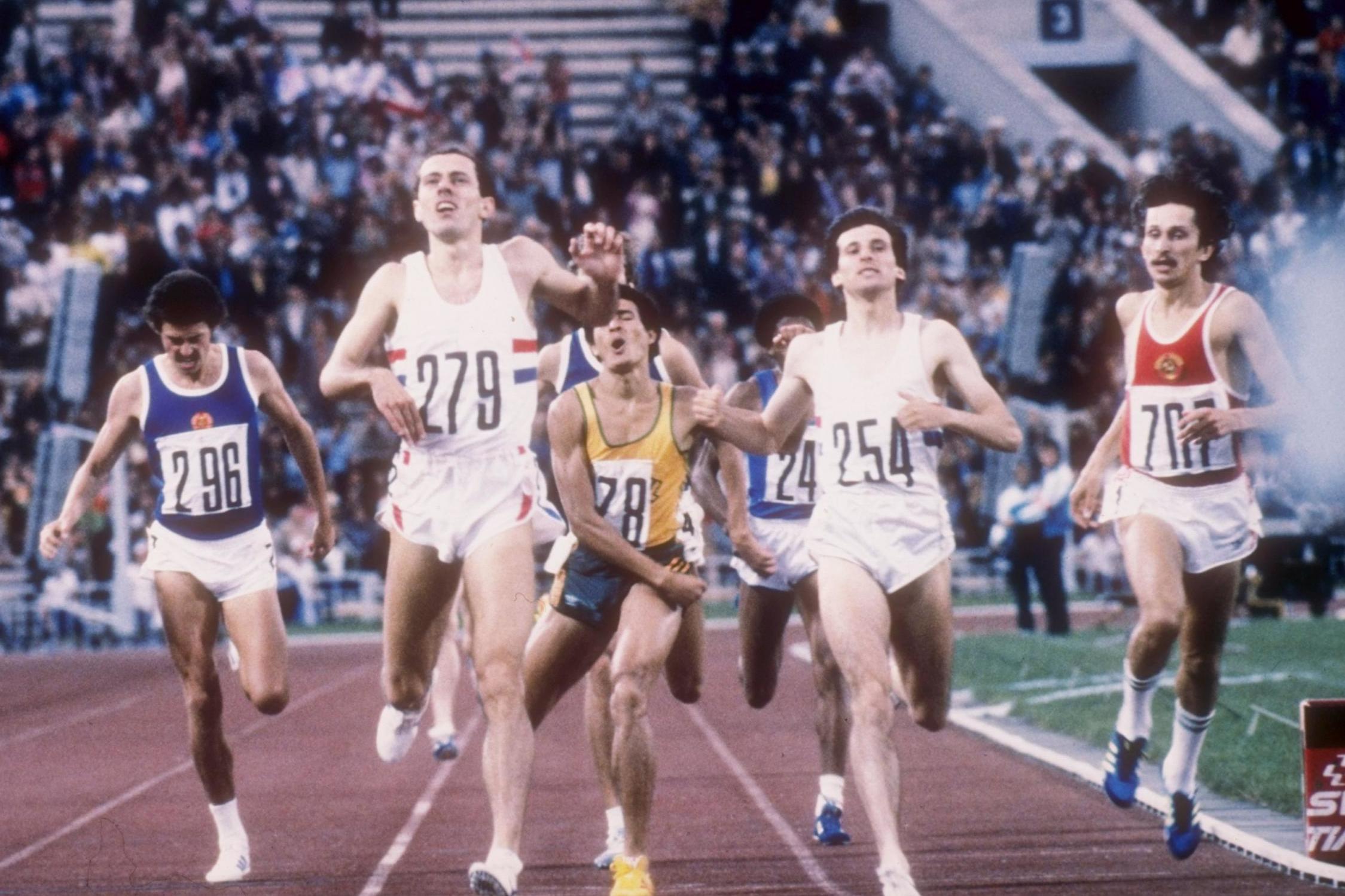
But Coe had form in losing the big ones. An unknown East German Olaf Beyer had beaten Ovett and Coe into second and third at the 1978 European Championships in Prague. After the race the media in the grandstands made a presumption that Coe and Ovett were swearing and blaming each other for defeat, but according to Coe, Ovett was actually asking him: “Who the fuck was that?” to which he replied: “I haven’t a fucking clue.”
It was one of the enduring myths about their relationship, that they did not see eye to eye. The truth was that it benefited the press to set them up as reviled rivals but both would frequently admit that they hardly knew each other, living far apart, and when they did meet they got along just fine. Certainly they turned the stereotypical north-south split on its head. Coe was the “posh one”, London-born but brought up in Sheffield, university-educated and media-friendly. Ovett was from Brighton but he was the “working class one”, a bit of a rebel on the track, arrogant and moody with the press. It was the Toff versus the Tough as one American writer put it, and fans tended to side with one or the other.
The truth was, neither had an axe to grind with the other. “We never made disparaging comments about each other in the press,” says Coe. “And I’ve spoken to Steve and we both agree it’s something we are proud of. After what we’d read about each other we were led to believe we wouldn’t like each other but when we met, the opposite was true.” However, for obvious reasons, it paid dividends for the media to suggest otherwise. And, on the back of that, an entire nation was waiting to see what would happen in Moscow.
Of course, 1980 was the year of the US-led Olympic boycott over the Soviet Union’s invasion of Afghanistan the year before. In all 65 nations did not take part and there were question marks over whether British athletes would compete. “There were months of uncertainty,” says Coe. “Parliament didn’t want us to compete but in the end the British Olympic Association said it was up to the individual sports associations, and British Athletics opted to go. The British public were generally supportive too.”
Coe versus Ovett was on. It had been two years since they had raced each other on the track but now they had no choice if they wanted to win Olympic gold.
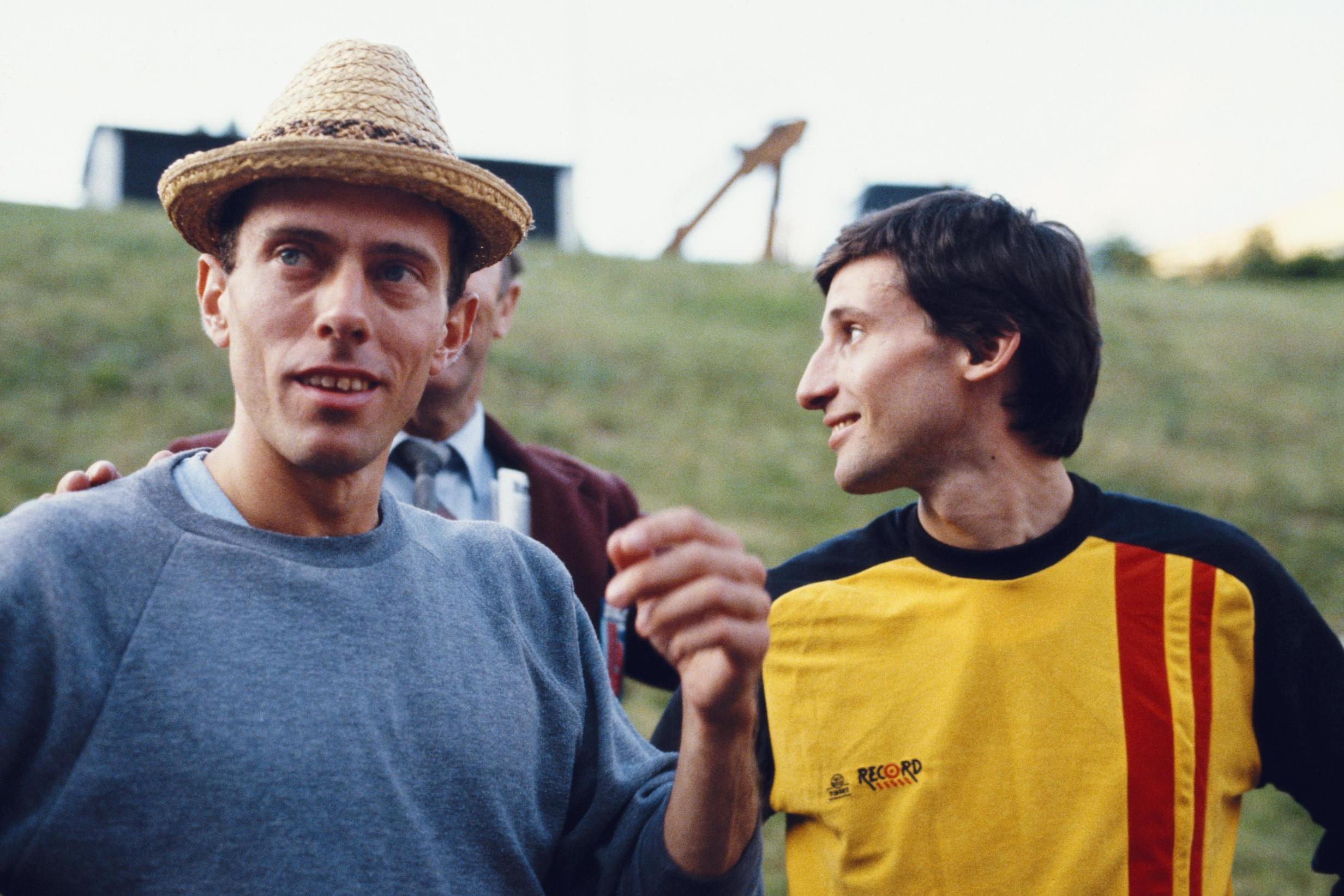
The 800m was first up and naturally neither runner had difficulty qualifying for the 26 July final. “I have never known pressure like it,” Coe admits. “I couldn’t sleep. I just lay there listening to my heart.” Ovett concurs: “The pressure Seb and I suffered was exceptional,” he recalls.
It was the worst race Coe would ever run – naïve and tactically inept. Meanwhile, it was almost certainly the best 800m of Steve Ovett’s career. Coe seemingly attempted to hang around at the back of the pack to keep out of trouble, but in such a high-quality field there’s only so much avoiding you can do. By the time he realised the pace had increased and he needed to be nearer the front, Ovett had barged his way forward in his inimitable style, “those blue eyes like chips of ice” as Coleman described him.
Coe was stranded. “He’s got himself in trouble… an awful lot to do and Coe is beaten surely,” called Coleman. And despite his astonishing and well-rehearsed finishing kick, he was. Ovett celebrated with a nonplussed expression while the agony of defeat and distress – the fear that his chance of gold was gone forever – was writ all over Coe’s face even before he crossed the finish line. He could barely drag himself on to the podium to collect his silver medal. “It looked like he’d been handed a turd,” wrote Clive James in The Observer.
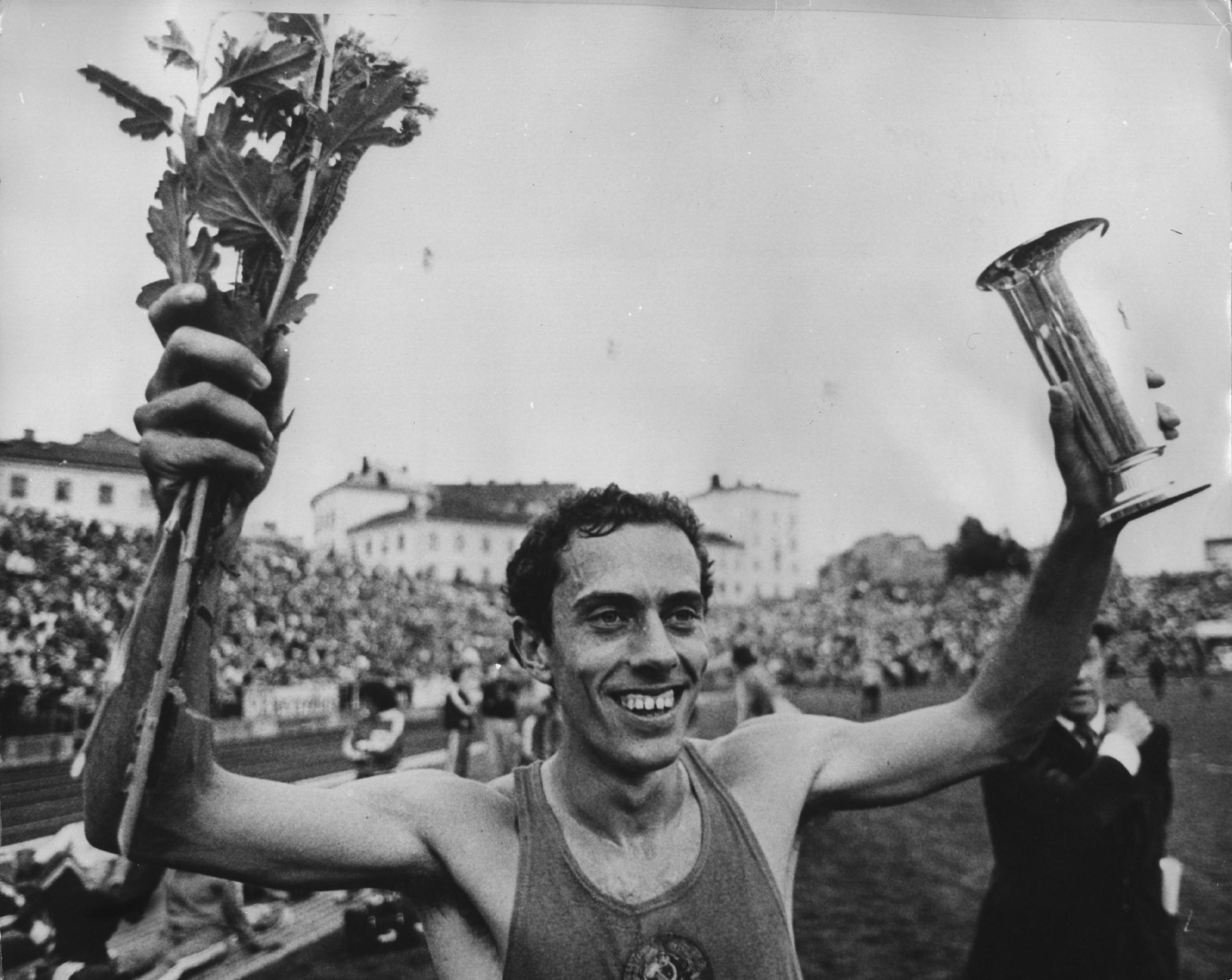
“I lost concentration,” Coe said afterwards. “I had no excuses. I just felt numb – 11 years just wasted.” Meanwhile, Ovett couldn’t believe what had happened. He won the race in the same time as he’d finished fifth with at the previous Olympics in Montreal. Coe should have beaten him by some distance. “It was a physical race,” Ovett says, “but I like mixing it. I was in the right place with 100 metres left but I kept thinking ‘where’s Seb, where’s Seb, why can’t I hear him chasing me?’ But he never came. And then I thought ‘thank god I’m champion’. The pressure was off. The truth is I thought Seb was the better athlete. His talent was natural, I just worked hard. But it all played out for me that day.”
‘Coe gets the revenge he wants’ called David Coleman as he crossed the line. But in all honesty it wasn’t revenge, it was more a sense of vindication and salvation for Coe
David Miller of The Times wrote: “It was the most traumatic day of [Coe’s] life.” “It looked like he’d been sprayed with nitrous oxide,” said former athlete Chris Brasher. Coe somehow had to drag himself off the ground while Ovett celebrated. “I drank way too much that evening,” the latter admits ruefully.
Meanwhile Coe had, mentally, to get himself back on an even keel. The 1500 metres final was only six days away. “I knew I couldn’t lose the 800 unless I ran badly,” he says. “But I did and I knew the 1500 was Steve’s strength. And I was scared it all meant that I couldn’t cope with pressure and nerves.” He found motivation in two places. The first was after seeing a newspaper headline: “Coe’s trail of shame” which ran alongside a photo of him out on a training run the day after his defeat. The second was fear – the fear that if he lost again, that would be the end of his career. Derek Ibbotson, the former mile world record holder and Olympian, wrote: “It’s in those circumstances you find out if you are a man or a mouse.”
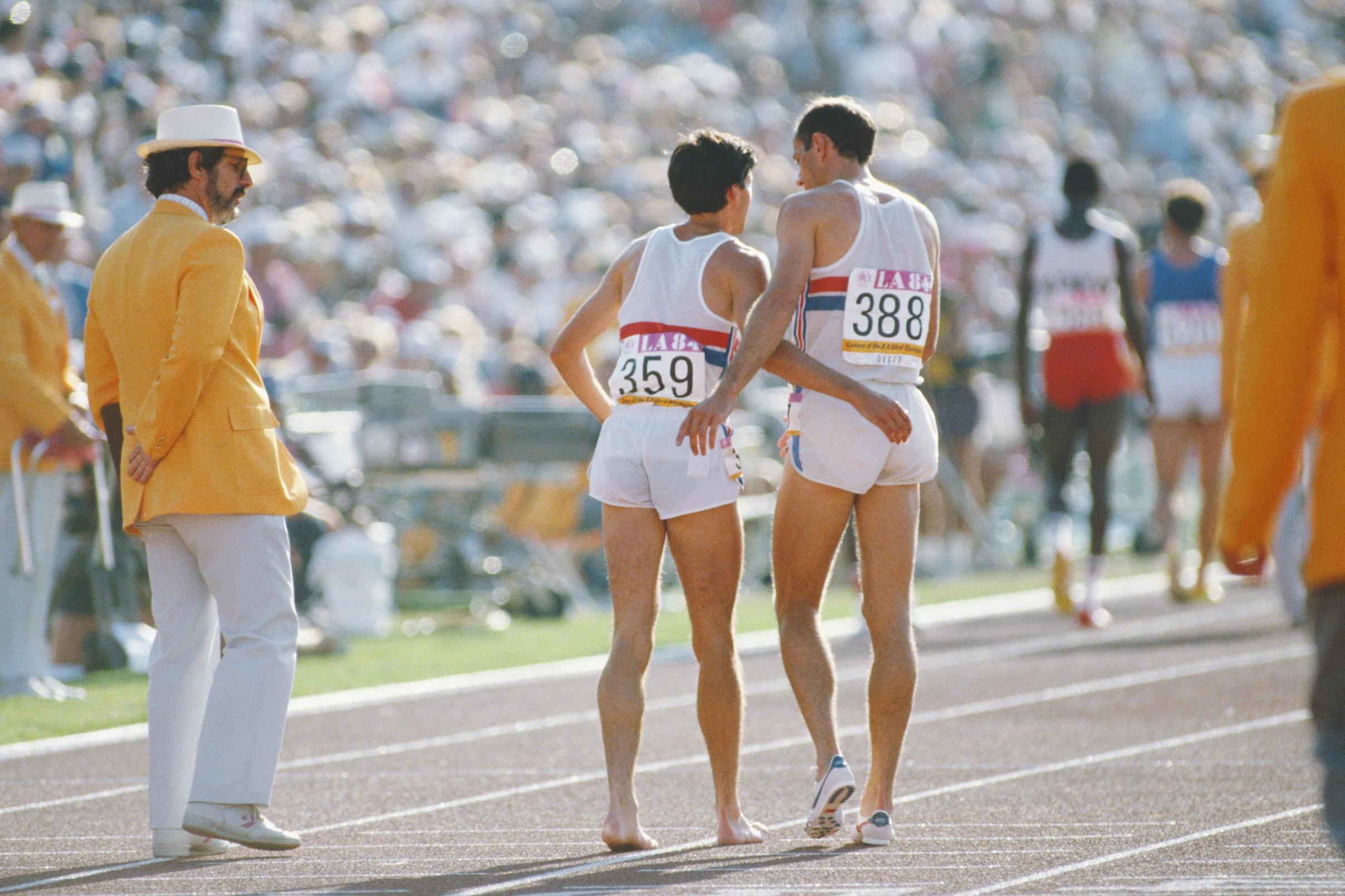
Twenty million Brits tuned in to watch the second denouement on 1 August. The race was totally different to the 800. That had been slow, this time once they passed half distance the field strung out as the pace was pushed hard. There are only a certain number of runners who can sprint for the line at the end of such a punishing race and none of them was better than Coe.
“I knew that sustained speed was playing into my hands,” he said afterwards. Coming off the final bend Coe surged into the lead. “There goes Coe,” shouted Coleman. “He’s looking for Ovett, wondering where he is. He’s right there behind him.” Ovett tried to go with him but he was spent. Yet Coe was still running scared: “With 40 metres to go I had nothing left. The anxiety was unbearable, but then, after I crossed the line it was sheer, bloody marvellous relief, no joy, just overpowering relief. And redemption.” Coe sank to his knees, Ovett looked contrite and a little perplexed. “I looked a bit stupid,” says Coe “But what if I had lost? And I also said to myself ‘never again’.”
Ovett was pragmatic about his first defeat in 46 races. “I think the celebrations after the 800 counted a bit,” he says. “But I don’t want to take anything away from Seb. He ran brilliantly and I tried so hard. I was flat out and he was still going away from me. I do think if he’d won the 800 not me, it might have been vice versa. Probably.”
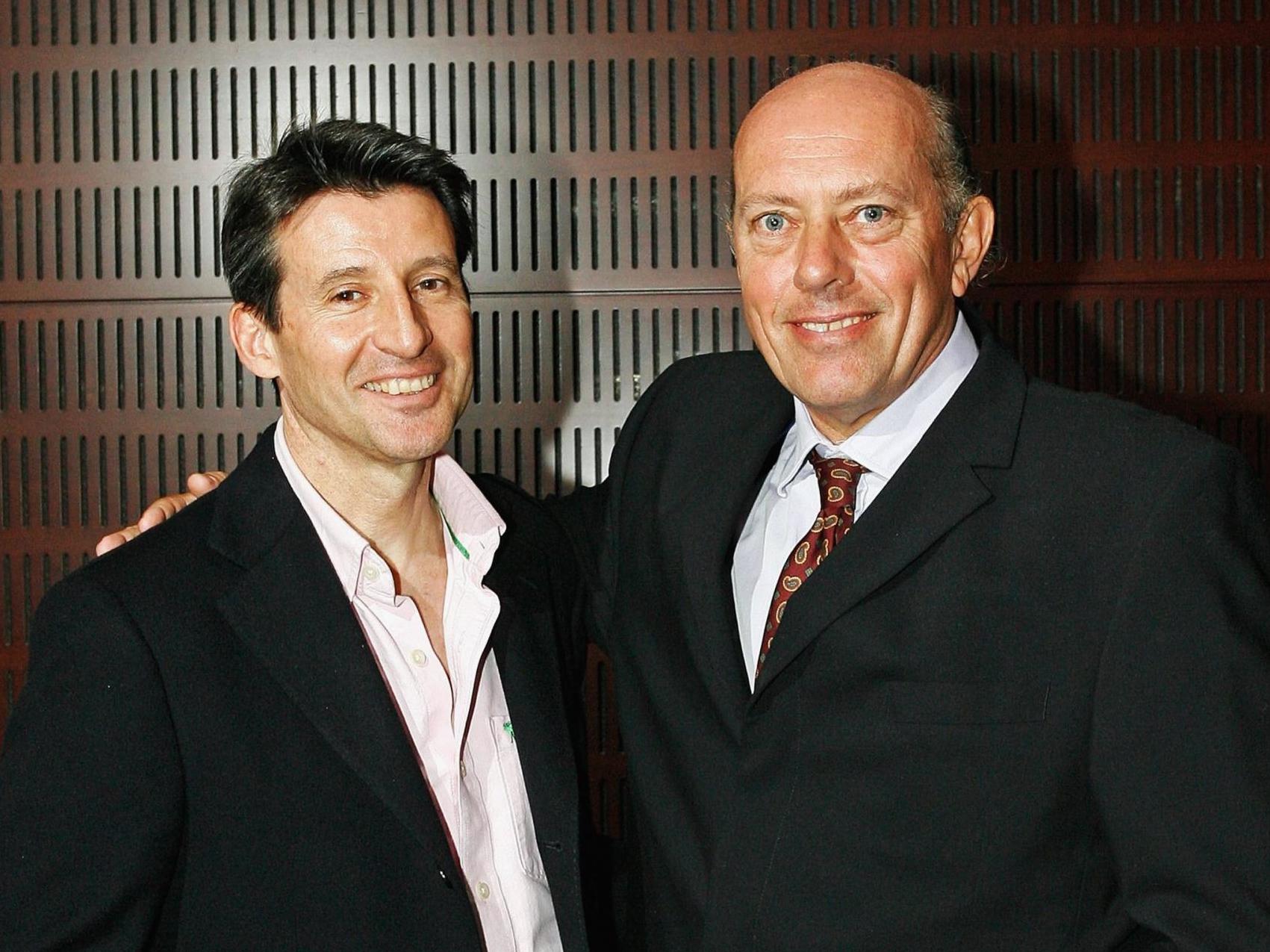
Coe ran the last two laps faster than anybody had done in history and “Coe gets the revenge he wants” called David Coleman as he crossed the line. But in all honesty it wasn’t revenge, it was more a sense of vindication and salvation for Coe. “They both came here to win the other medal,” added Coleman, and ironically they would revert to type after Moscow. Before the next year was out Coe had lowered his 800-metre world record and Ovett had done the same in the 1500.
Sebastian Coe would win 1500m gold at the 1984 Los Angeles Olympics, the only man ever to retain the title, but it would always be Moscow that defined the careers of both him and Steve Ovett. Coe would go on to be variously a Tory MP, the man who delivered the 2012 London Olympics, and the current president of the International Association of Athletics Federations. Steve Ovett now lives in Australia and is a sports commentator.
“We both came through a difficult period as pretty reasonable balanced people,” says Coe of himself and his rival. “He was the greatest runner I ever competed against and although we live far apart now, and I don’t see him often, I count him as my friend.”
“We both remained ourselves,” says Ovett. “And we are still friends, which is incredible considering what we both went through.” “It was a unique experience,” adds Coe. “I often wonder if other athletes ever experienced the pressure Steve and I did.”
Whatever happened in Moscow in 1980 it was always going to be remembered by athletics fans as two of the greatest middle-distance runners who ever lived clashing head on in the biggest sports event on the planet. But in “stealing” each others’ gold medals they created a story that transcended the sport and hooked the rest of the nation, indeed the entire world; a story that is still regarded as one of the greatest sporting duels ever witnessed.
Join our commenting forum
Join thought-provoking conversations, follow other Independent readers and see their replies
Comments